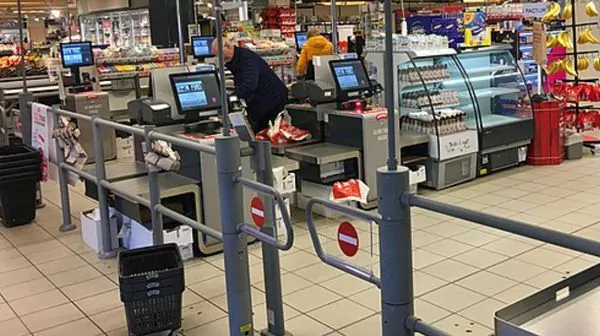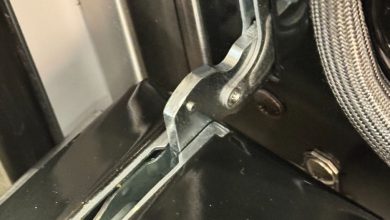Putting Profits Before Customers

Self-checkout machines: a convenient illusion or a profit-driven nightmare? While touted as a time-saving innovation, these automated checkout stations have increasingly become a source of frustration and even fear for consumers.
ADVERTISEMENT
Initially introduced as a cost-cutting measure for retailers, self-checkout machines have proven to be a double-edged sword. According to Sylvain Charlebois, director of the Agri-Food Analytics Lab at Dalhousie University, the primary motivation behind their widespread adoption was to reduce labor expenses. However, the reality is that customers have consistently expressed dissatisfaction with these machines.
ADVERTISEMENT

ADVERTISEMENT
Retail giants like Walmart and Target have heavily invested in self-checkout technology, achieving up to a sixty-six percent reduction in labor costs by replacing human cashiers. While this translates to significant savings for these corporations, the burden has shifted to consumers who often find themselves grappling with malfunctioning equipment and lengthy wait times.
Beyond inconvenience, there’s a more sinister aspect to this trend. Numerous reports have surfaced alleging that some retailers are exploiting self-checkout errors to falsely accuse customers of theft. This tactic, driven by a relentless pursuit of profit, has resulted in innocent individuals being subjected to humiliating accusations and potential legal repercussions.
Criminal defense attorney Carrie Jernigan has sounded the alarm about this growing issue, highlighting the aggressive tactics employed by big-box stores like Walmart to prosecute customers for minor or unintentional errors. These corporations are willing to deploy legal teams to pursue even the most trivial of alleged offenses, leaving customers to navigate a complex and stressful legal battle.
The risks associated with using self-checkout machines are undeniable. Retailers often rely heavily on surveillance footage to identify potential shoplifters based on the last customer who used a particular machine. This approach creates a presumption of guilt, with customers facing the daunting task of proving their innocence. In some cases, these false accusations can lead to criminal charges and even jail time.
To protect yourself from the pitfalls of self-checkout, consider opting for a traditional checkout lane with a human cashier. While it may require slightly more patience, it significantly reduces the risk of being falsely accused of theft.
It’s imperative to remain vigilant and informed about the potential dangers lurking within our daily lives. By understanding the tactics employed by some businesses, we can take proactive steps to safeguard our rights and protect ourselves from undue harm.




